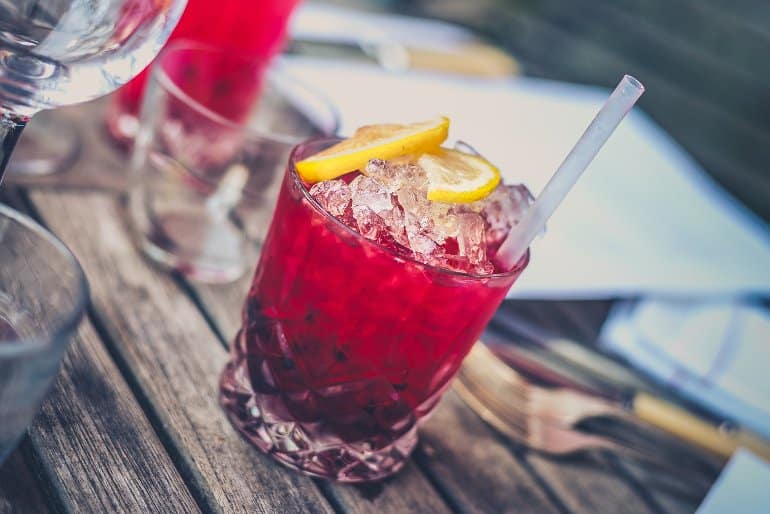Summary: Having a sense of purpose in life decreases alcohol consumption and binge drinking temptation in some social drinkers.
Source: University of Pennsylvania
Heavy alcohol use is common among college students—and as a consequence, it puts young adults at risk for a wide range of health issues, from cardiovascular disease to cancer. Day in and day out, college students are bombarded with cues to drink, whether that’s seeing a group of friends toast at a party or celebrating after an exam.
Using functional MRI (fMRI) scanning technology, researchers from the University of Pennsylvania, Columbia University, and Dartmouth College examined the relationship between these cues, alcohol craving, and alcohol consumption. They found that having a strong sense of purpose in life decreases the temptation to consume alcohol to excess among some social drinkers.
The study, published in Addiction, is titled “Purpose in life, neural alcohol cue reactivity and daily alcohol use in social drinkers.”
Why purpose in life?
Lead author Yoona Kang, a research director of the Communication Neuroscience Lab at the Penn’s Annenberg School for Communication, is deeply interested in the impact of purpose in life on health.
Her previous research has found that having a strong life purpose—the sense that your life is guided by personally meaningful values and goals—is associated with many health benefits, including easing the loneliness of COVID-19 isolation and reducing the effort it takes to make healthy choices.

“Values and purposes can have powerful effects on how people think and behave,” Kang says. “And what’s interesting about this study is that we asked participants, ‘How much sense of purpose in life do you feel right now?’ Because your level of purpose can fluctuate day by day.”
Craving alcohol
For this study, Kang and colleagues charted the behavior and attitudes of 54 healthy college students, with daily surveys over the course of a month. Once a day, participants answered questions about their current level of purpose in life—and every morning and evening they reported how much they craved and consumed alcohol.
“We focused on craving because it is one of the strongest predictors of actual drinking. If you crave, then you’re more likely to drink,” Kang says. “But just because you crave alcohol doesn’t mean that you’re going to go out and drink, so we wanted to know what’s nudging these social drinkers into drinking when they crave alcohol.”
The student volunteers also received fMRI brain scans, which gave a real-time picture of their brain activity while they were exposed to alcohol cues, like photos of beer, wine, and liquor or photos of people toasting at a party. Researchers analyzed the participants’ brain activity within the ventral striatum, the area of the brain previously associated with reward and craving.
Individuals whose brains showed greater activity when they saw alcohol cues—people with higher neural alcohol cue reactivity—were more likely to drink after craving alcohol.
When this data was matched with life purpose data, Kang and colleagues found something interesting: These neurally sensitive drinkers did not necessarily drink more if they were feeling a strong life purpose when they craved alcohol. And if they felt less purposeful? They were more likely to drink heavily after a craving for alcohol.
About this binge drinking and psychology research news
Author: Press Office
Source: University of Pennsylvania
Contact: Press Office – University of Pennsylvania
Image: The image is in the public domain
Original Research: Closed access.
“Purpose in life, neural alcohol cue reactivity and daily alcohol use in social drinkers” by Yoona Kang et al. Addiction
Abstract
Purpose in life, neural alcohol cue reactivity and daily alcohol use in social drinkers
Background and Aim
Alcohol craving is an urge to consume alcohol that commonly precedes drinking; however, craving does not lead to drinking for all people under all circumstances. The current study measured the correlation between neural reactivity and alcohol cues as a risk, and purpose in daily life as a protective factor that may influence the link between alcohol craving and the subsequent amount of consumption.
Design
Observational study that correlated functional magnetic resonance imaging (fMRI) data on neural cue reactivity and ecological momentary assessments (EMA) on purpose in life and alcohol use.
Setting
Two college campuses in the United States.
Participants
A total of 54 college students (37 women, 16 men, and 1 other) recruited via campus-based groups from January 2019 to October 2020.
Measurements
Participants underwent fMRI while viewing images of alcohol; we examined activity within the ventral striatum, a key region of interest implicated in reward and craving. Participants then completed 28 days of EMA and answered questions about daily levels of purpose in life and alcohol use, including how much they craved and consumed alcohol.
Findings
A significant three-way interaction indicated that greater alcohol cue reactivity within the ventral striatum was associated with heavier alcohol use following craving in daily life only when people were previously feeling a lower than usual sense of purpose. By contrast, individuals with heightened neural alcohol cue reactivity drank less in response to craving if they were feeling a stronger than their usual sense of purpose in the preceding moments (binteraction = −0.086, P < 0.001, 95% CI = −0.137, −0.035).
Conclusions
Neural sensitivity to alcohol cues within the ventral striatum appears to be a potential risk for increased alcohol use in social drinkers, when people feel less purposeful. Enhancing daily levels of purpose in life may promote alcohol moderation among social drinkers who show relatively higher reactivity to alcohol cues.






